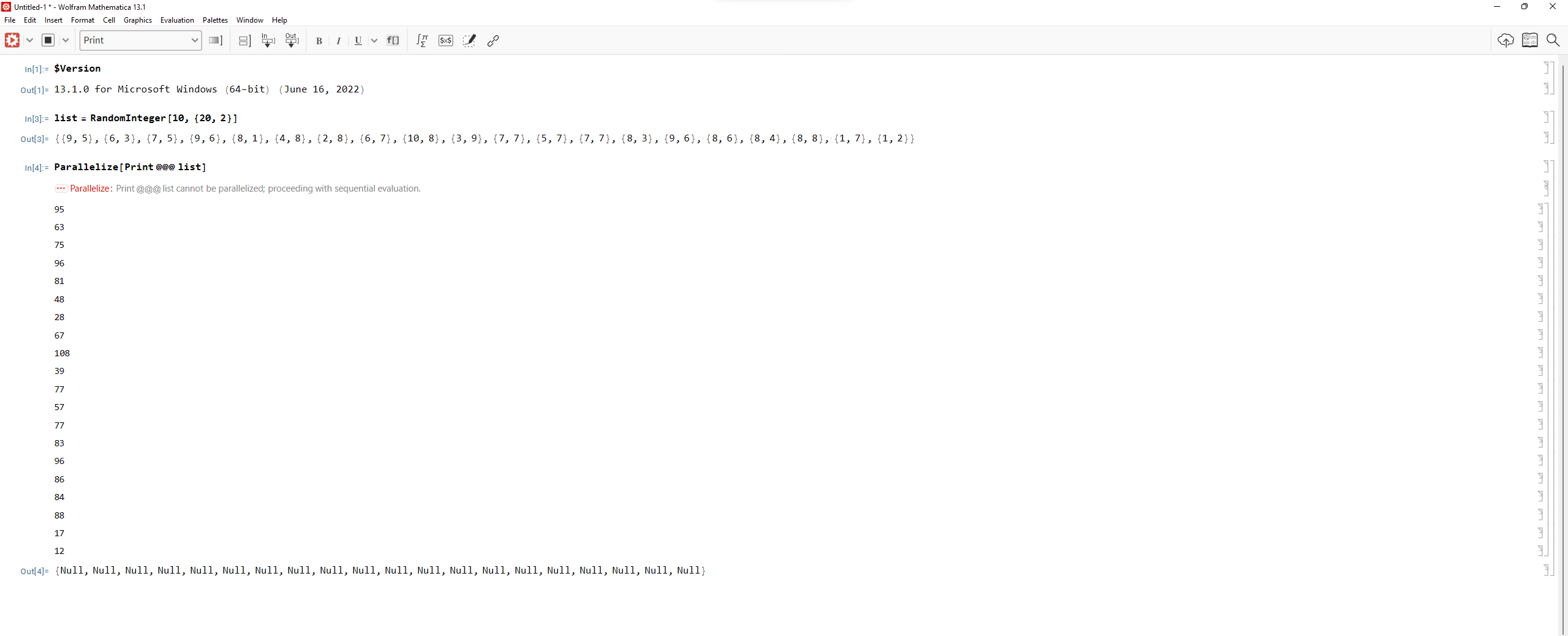In[1]:= $Version
Out[1]= "13.1.0 for Microsoft Windows (64-bit) (June 16, 2022)"
In[3]:= list = RandomInteger[10, {20, 2}]
Out[3]= {{9, 5}, {6, 3}, {7, 5}, {9, 6}, {8, 1}, {4, 8}, {2, 8}, {6,
7}, {10, 8}, {3, 9}, {7, 7}, {5, 7}, {7, 7}, {8, 3}, {9, 6}, {8,
6}, {8, 4}, {8, 8}, {1, 7}, {1, 2}}
In[4]:= Parallelize[Print @@@ list]
During evaluation of In[4]:= Parallelize::nopar1: Print@@@list cannot be parallelized; proceeding with sequential evaluation.
During evaluation of In[4]:= 95
During evaluation of In[4]:= 63
During evaluation of In[4]:= 75
During evaluation of In[4]:= 96
During evaluation of In[4]:= 81
During evaluation of In[4]:= 48
During evaluation of In[4]:= 28
During evaluation of In[4]:= 67
During evaluation of In[4]:= 108
During evaluation of In[4]:= 39
During evaluation of In[4]:= 77
During evaluation of In[4]:= 57
During evaluation of In[4]:= 77
During evaluation of In[4]:= 83
During evaluation of In[4]:= 96
During evaluation of In[4]:= 86
During evaluation of In[4]:= 84
During evaluation of In[4]:= 88
During evaluation of In[4]:= 17
During evaluation of In[4]:= 12
Out[4]= {Null, Null, Null, Null, Null, Null, Null, Null, Null, Null, \
Null, Null, Null, Null, Null, Null, Null, Null, Null, Null}
Weird, I still can't.
